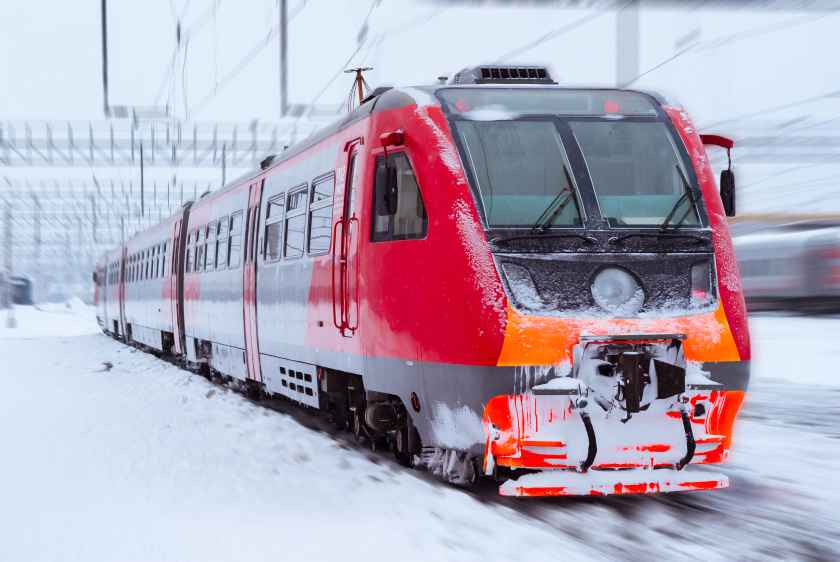Sunday, July 20, 2025
The role of different commuter services
Latvia warns that the trams or electric commuter trains that remain the lifeblood of the country’s public transport system are under threat due to rundown overhead power lines. Electric services connecting big cities and attractions throughout the nation have been a vital kind of transportation for residents and tourists alike.
The future for these services is unclear, that the electric commuter services may be suspended by 2030 to 2035, unless major infrastructure work is carried out. The loss of these services could have widespread impacts, especially on the tourism industry, which depends on reliable and sustainable public transit connections to get visitors and locals to key destinations.
Electric Commuter Services and Their Contribution to Tourism
Electric train lines of commuters have a great importance in the development and promotion of tourism in Latvia for foreign tourists, due to low prices, eco-friendliness and convenience in transportation in the country. The national rail network serves several important tourist centers, among them the capital, Riga, which is the entry point for millions of tourists who come each year to visit the UNESCO World Heritage Old Town, see its historic architecture and take part in cultural festivals.
Moreover, popular places like Jelgava, Daugavpils, Ventspils are within anyone’s arm’s reach, thanks to the electric trains, so that a tourist is able to set off around both city and nature attractions. If the electric commuter services are developed, access to these areas would be more limited and a lot less tourism would be happening.
For example, foreign tourists visiting Riga often utilize the services of the electric train in order to explore nearby areas such as the Gauja National Park, Jūrmala and other postcard-worthy towns and cities located along the coast and river valleys. In the event such services were to be significantly reduced or discontinued, tourists would potentially find themselves having to use more damaging and less convenient means of transportation, thereby increasing costs and disincentives of visiting Latvia.
Impact on the Tourist Mobility and Commerce
Should the electric commuter services be discontinued, visitors may have to rely increasingly on taxis, buses and hire cars to travel between city centres and popular tourist attractions. This is not only more expensive for tourists, but it has also added to the traffic jam in popular tourist places like Riga.
Public transport in general, and rail in particular, has to be a facilitator for urban tourism. Travellers regularly need on-time, reliable transport services to shuttle them around from hotel to attraction, attraction to hotel and sight to sight.
Other tourism driven businesses like hotels, tour operators and restaurants in areas that rely on the electric commuter routes would also suffer from a decrease in visitors. Popular tourist destinations that are dependent on rail networks providing easy transport links could suffer a drop in footfall, hitting business profits.
Cultural and historical tourism in Latvia may also be affected. Destinations such as the medieval towns of the region, Latvia’s national parks and historical sites, many of them situated in more remote areas of the country, rely on ever more dependable transport systems to connect tourists to them. There may also be less visitors to such sites if commuter services decrease.
Environmental and Sustainable Tourism Concerns
The demise of electric train services would contravene Latvia’s pledge to sustainable tourism, where eco-friendly travel and cutting down the carbon footprint is the idea. Electric commuter trains are a major part of the country’s sustainable transport system, offering leisure travellers and adventurers the opportunity to choose the environmentally friendly way to see the country.
Electric trains also have a much lesser environmental impact than cars and buses, and encourage sustainability in Latvia and reflect the rise of eco-tourism. As a growing number of tourists search for green tourism destinations, the presence of electric train services is also perceived to be important in their choice of destination.
Without such facilities, visitors potentially become dependent on the car or on other high emission transportation and generate trips contrary to the general sustainability trend. This could mean there might be fewer ecologically aware tourists going to Latvia and it will building its image as a destination for sustainable tourism.
Government Response and Future Investment
The improvements would include replacing obsolete equipment, modernizing power systems, and improving the overall reliability of the network. But the projected expense of such upgrades is high and the funding is difficult to arrange.
The Latvian government has put a lot of weight to the electric suburban train network for both locals and tourists. Discussions will continue on plans to attract funding from both national and EU sources to finance the continued operation of the services. The government has also stated it will support sustainable transport projects as part of its wider environmental and economic plans.
Tourism representatives are cooperating with (LDZ) to minimize the impact of the traffic and, where new investments are being made, to place tourism above other considerations. Keeping Latvia in the leading European tourist markets is important and efficient sustainable transport will play an integral part of it.
Conclusion: Investment in Tourism in Latvia to Recovery
Electric commuter trains may be suspended in Lativa, which poses the serious threat to the country’s tourism development. With millions of travellers requiring efficient, cost effective and environmentally sustainable means to explore the country, the closure of these services would have a significant impact on related tourism businesses, and therefore travellers.
In order to safeguard the future of Latvian tourism, it is imperative to invest in the infrastructure to modern and maintain the country’s electric rail network. In this way, Latvia can still appeal to visitors interested in environmentally-friendly travel options while contributing to its larger sustainability targets.
(Source: Latvia Tourism.)
